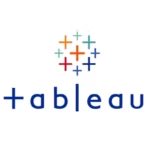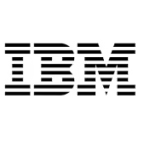The Best AI-Powered Analytics Tools for Data-Driven Decision Making
Traditional analytics only reports what happened. AI-Powered Analytics Tools go a step further, not only uncovering hidden patterns and trends in your data (Descriptive Analytics) but also suggesting actions and predicting future outcomes (Predictive and Prescriptive Analytics). Platforms like Power BI, Tableau, and Zoho Analytics use Machine Learning to make advanced Business Intelligence (BI) accessible. This page is your guide to choosing the solution that will transform your data into a competitive advantage.
Refine your search:
| Rank | Tool | Price | Score | Visit |
|---|---|---|---|---|
| #1 |  Tableau Review Tableau, a visual data analysis platform, has established itself as a global reference, combining the power of Business Intelligence (BI) with Artificial Intelligence (AI) capabilities to facilitate the interpretation of complex information. | from $35/mo | 4 | |
| #2 | Zoho Analytics Review Zoho Analytics is a Business Intelligence (BI) and data analysis platform that allows small and medium-sized businesses to transform scattered information into clear and actionable reports. | from €24/mo | 4 | |
| #3 | Medallia Review Medallia is a comprehensive experience management platform spanning from feedback capture to advanced analysis and action implementation. | Request Demo | 4 | |
| #4 | Microsoft Power BI Review Discover if Power BI is right for your business. Our in-depth review covers AI features, Copilot, pricing, integrations, and top alternatives. | Free plan | 4 | |
| #5 |  IBM Cognos Analytics Review Our score reflects its incredible power, but also its high entry threshold in terms of cost and training requirements. | Free plan | 3 | |
| #6 | Lexalytics Review Discover Lexalytics Semantria's NLP capabilities for sentiment analysis and entity extraction. Ideal for SMEs with technical teams and existing BI dashboards. | Request a demo | 3 |
What is an AI Analytics Tool and Why is it Crucial?
An AI analytics tool is software that uses artificial intelligence (such as Natural Language Processing in IBM Cognos or sentiment analysis in Lexalytics) to automate data preparation, generate complex visualizations, and interpret findings.
For SMEs/SMBs, this technology is crucial because it allows for:
- Insight Discovery: Identifying correlations and anomalies that would be missed in manual reports.
- Conversational Analysis: Enabling users to ask questions in natural language (“Why did sales drop in the North region last month?”) and receive data-backed answers.
- Trend Prediction: Forecasting future business performance or customer behavior.
- Data Democratization: Putting advanced Data Science tools within reach of any business user, not just analysts.
Why AI Analytics Software is Vital for Your SME/SMB
In today’s digital environment, the ability to make fast, informed decisions separates market leaders. An AI analytics tool is vital because it:
- Accelerates the Decision Cycle: Reduces the time it takes to move from raw data to actionable recommendations.
- Optimizes Resources: Allows business teams to gain insights previously only accessible by hiring expensive data scientists.
- Enhances Customer Experience: Using sentiment analysis (like in Medallia) to understand customer needs and frustrations in real time.
The best analytics platforms are those that integrate with your existing data stack and allow any user—from marketing to sales—to find answers without writing complex code.
How We Choose and Rank the Best AI Analytics Tools
When reviewing and classifying these tools, we focus on the value they directly bring to business strategy:
- AI Capability (Insights and Prediction): How robust is the Machine Learning function for uncovering trends and predicting outcomes (Prescriptive Analytics)?
- Visualization (UX): Does the tool facilitate the creation of clear, dynamic dashboards that effectively communicate the data story?
- Data Integration: Does it connect smoothly with data warehouses, cloud databases (AWS, Azure), and enterprise applications (CRM, ERP)?
- SME Scalability: Do the pricing and infrastructure align with the needs of a growing business?
The most valuable analytics tools are those that transform data investment into practical knowledge that drives growth.
Explore Our AI Tool Categories
Find our category guides here, where we have grouped AI tools by function and use case. Each category contains detailed analyses to help you make an informed decision.
